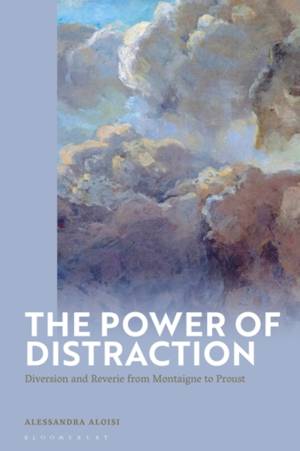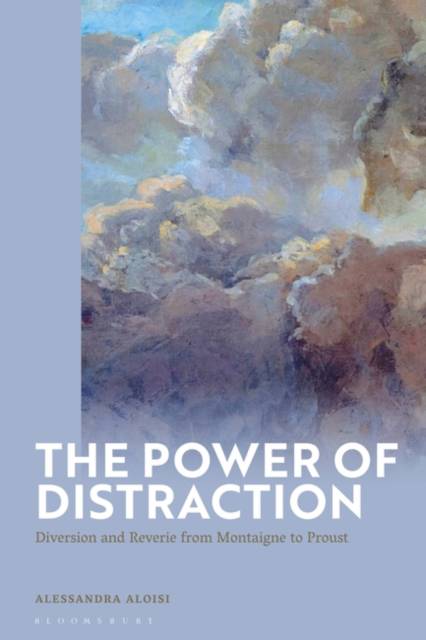
Bedankt voor het vertrouwen het afgelopen jaar! Om jou te bedanken bieden we GRATIS verzending (in België) aan op alles gedurende de hele maand januari.
- Afhalen na 1 uur in een winkel met voorraad
- In januari gratis thuislevering in België
- Ruim aanbod met 7 miljoen producten
Bedankt voor het vertrouwen het afgelopen jaar! Om jou te bedanken bieden we GRATIS verzending (in België) aan op alles gedurende de hele maand januari.
- Afhalen na 1 uur in een winkel met voorraad
- In januari gratis thuislevering in België
- Ruim aanbod met 7 miljoen producten
Zoeken
The Power of Distraction
Diversion and Reverie from Montaigne to Proust
Alessandra Aloisi
Hardcover | Engels
€ 195,45
+ 390 punten
Omschrijving
From Pascal to contemporary anxieties about attention, we have constantly been urged to avoid distraction if we want to live and work better. But Alessandra Aloisi argues that we are missing the point.Drawing on a broad range ofEuropean philosophy and literature, this book considers distraction not as an expression of human imperfection, but as a creative, subversive, and aesthetic capability.
In contrast to the traditional accounts, from Saint Augustine to Robert Burton, which either associated distraction with sin or considered it as a symptom of melancholy, Aloisi argues that it is often precisely when we stop thinking about something that inspiration finds us. Why else are artists described as having their heads in the clouds? This book demonstrates the serendipity of distraction through close readings of cultural and visual sources ranging from the mathematician Poincaré to the Netflix show, Black Mirror.
With inspiration from La Bruyère, Rousseau, Leopardi, Stendhal, Baudelaire, and others, Aloisi further examines the political value of distraction. After all, in an age of ubiquitous technology and 24/7 availability fighting for our attention, distraction provides what Bergson called a 'slight revolt' from the codes and behaviors that society dictates.
Combining philosophy, literature, art, and politics, The Power of Distractionencourages us to think differently about our attention and considers just how productive daydreams can be.
In contrast to the traditional accounts, from Saint Augustine to Robert Burton, which either associated distraction with sin or considered it as a symptom of melancholy, Aloisi argues that it is often precisely when we stop thinking about something that inspiration finds us. Why else are artists described as having their heads in the clouds? This book demonstrates the serendipity of distraction through close readings of cultural and visual sources ranging from the mathematician Poincaré to the Netflix show, Black Mirror.
With inspiration from La Bruyère, Rousseau, Leopardi, Stendhal, Baudelaire, and others, Aloisi further examines the political value of distraction. After all, in an age of ubiquitous technology and 24/7 availability fighting for our attention, distraction provides what Bergson called a 'slight revolt' from the codes and behaviors that society dictates.
Combining philosophy, literature, art, and politics, The Power of Distractionencourages us to think differently about our attention and considers just how productive daydreams can be.
Specificaties
Betrokkenen
- Auteur(s):
- Uitgeverij:
Inhoud
- Aantal bladzijden:
- 208
- Taal:
- Engels
Eigenschappen
- Productcode (EAN):
- 9781350342941
- Verschijningsdatum:
- 5/10/2023
- Uitvoering:
- Hardcover
- Formaat:
- Genaaid
- Afmetingen:
- 140 mm x 216 mm
- Gewicht:
- 381 g

Alleen bij Standaard Boekhandel
+ 390 punten op je klantenkaart van Standaard Boekhandel
Beoordelingen
We publiceren alleen reviews die voldoen aan de voorwaarden voor reviews. Bekijk onze voorwaarden voor reviews.









